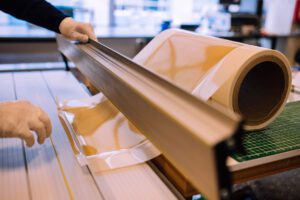In certain hydrogen applications, stainless steel components can be subject to extreme wear and galling. In the past, this problem was countered with traditional wear protection methods and the respective components were protected with a coating (e.g., hard chrome plating, DLC or chrome carbide) or classic plasma nitriding or salt bath diffusion layers. However, these processes are generally known to affect the corrosion resistance of the stainless steel parts negatively.
One solution to this dilemma is a surface hardening that protects against wear and galling while at the same time maintaining or even improving the corrosion resistance of the materials. This solution was developed by the founders of the Danish company Expanite and is increasingly being used in the hydrogen sector. For example, components of high-pressure and control valves or clutch systems used in the hydrogen infrastructure up to components for fuel cells are hardened.
“Our customers often ask whether the Expanite technology increases the risk of hydrogen embrittlement, which is not the case,” explains Dr. Holger Selg, application expert and Expanite Sales Director DACH. “The cause of the hydrogen embrittlement can be traced back to the diffusion of the hydrogen into the material, and in theory the Expanite layer acts as a diffusion brake to a certain extent. Charged with nitrogen and carbon, the Expanite surface is harder for the hydrogen to penetrate than an untreated surface.”
According to the company, its gas-based diffusion process is significantly more energy efficient and environmentally friendly than comparable wear protection processes, and thanks to the treatment in a vacuum, no time-consuming cleaning of the parts, e.g., with aggressive chemicals, is necessary after hardening.
The Expanite technology, specially developed for corrosion-resistant materials, offers a solution for austenitic, martensitic, ferritic, and duplex stainless steels as well as for expensive nickel-based alloys such as Inconel and Hastelloy. The new special process ExpaniteHard-Ti, which the Expanite team of experts in Denmark has developed to market maturity in recent years, is used for titanium materials.






